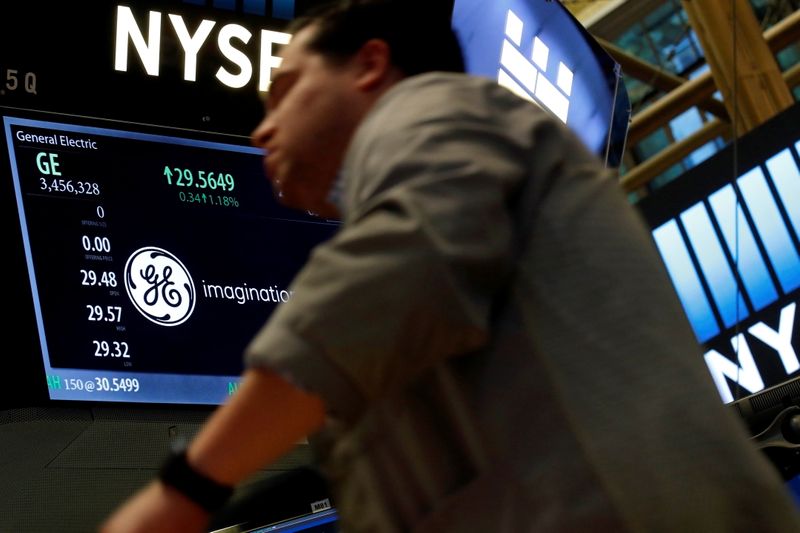S&P 500 slips, but losses kept in check as Nvidia climbs ahead of results
By Geoffrey Smith
Investing.com --- A modest bit of monetary easing in China triggers a short-covering bounce in the U.S., but stocks are still on course for their lowest weekly close since March 2021. President Joe Biden is expected to sign a $40 billion aid bill for Ukraine after the Senate voted it through on Thursday, while the ruble hits a four-year high. Europe's economic data continue to get worse, with German producer price inflation hitting 33%. And oil drifts as markets remain stuck between the fear of tight supplies and the fear of weakening demand. Here's what you need to know in financial markets on Friday, 20th May.
1. Chinese rate cut
The Chinese central bank kept its one-year prime loan rate unchanged, but its benchmark five-year mortgage rate, drawn from a panel of contributing lenders, was lowered by 0.15%.
The news was taken as signs of an easing of monetary policy by markets eager for any good news after a week dominated by growing fears of a U.S. recession. Chinese stock indices rose by as much as 2.5% and the offshore yuan strengthened by 0.8%.
However, the one-year prime rate is the more important, having a more direct impact on a broader range of credit across the Chinese economy, and a cut in a five-year mortgage rate will do little to end a housing crisis where affordability ratios are still off the scale.
The PBoC’s relative inaction is remarkable in the face of what appears to be increasing pressure from elsewhere in the government on it to support the economy. The head of its monetary policy department was removed from his post earlier this week, under investigation for “suspected serious violation of laws and discipline.”
At the corporate level, luxury stocks in Europe underperformed after Richemont (SIX:CFR) chairman Johann Rupert warned that China's economic problems will last "longer than people think". Around 40% of Richemont 's boutiques in the country are currently closed.
2 Ukraine aid bill passes; ruble hits four-year high
President Joe Biden is expected to approve a $40 billion aid bill for Ukraine after Republican Senators dropped their opposition to it.
The move comes as G7 finance ministers and central bank chiefs meet to discuss, among other things, the cost of supporting Ukraine through a conflict that appears ever likelier to drag on for months. Russian armed forces are reported to have begun digging in to defend captured territory in the south and east of the country. Ukraine’s financing needs are estimated at as much as $7 billion a month.
In Russia, meanwhile, the official ruble rate reached its strongest since 2018. That’s a result largely of a swelling current account surplus, based on the reality that while it is still collecting dollars for its energy exports, it is effectively unable to import a broad range of consumer and industrial goods. The central bank eased restrictions on its convertibility into other currencies on Thursday, but left those regarding conversion into dollars and euros still in place.
3. Stocks set to open higher; Palo Alto earnings lighten the mood
U.S. stocks are set to open higher Friday, enjoying a boost from the Chinese news, but the move looks again like a short-term bounce given the lack of any major change in underlying fundamentals.
By 6:20 AM ET (1020 GMT), Dow futures were up 292 points, or 0.9%, while S&P 500 futures were up 1.1% and Nasdaq 100 futures were up 1.5%.
The S&P is still on course, however, to end a week below 4,000 points for the first time since March 2021, after two Federal Reserve officials from opposing ends of the policy spectrum – Esther George and Neel Kashkari – played down the influence of stock market developments on the Fed’s thinking on Thursday.
Stocks in focus are likely to include Palo Alto Networks (NASDAQ:PANW), after the cybersecurity firm's earnings provided some much-needed relief from the retail sector’s doom and gloom reports after the bell on Thursday.
Foot Locker (NYSE:FL) and consultant Booz Allen Hamilton (NYSE:BAH) head a thin earnings roster before the open.
4. European data shocks
Europe’s economic data continue to look more and more alarming by the day.
U.K. consumer confidence hit an all-time low, according to the GfK index released earlier, surpassing the levels seen at the depths of the 2008/9 financial crisis and recession and the start of the pandemic in 2020. Whether that can really be the case, with unemployment at its lowest in 50 years, must remain subject to some doubt. U.K. retail sales, meanwhile, bounced surprisingly in April but didn’t buck their longer-term downward trend.
What is less open to question is that inflationary pressures in the Eurozone’s largest economy show no sign of easing. German producer price inflation accelerated to another all-time high of 33.5% in April, the monthly increase slowing only to 2.8% - double what was expected.
The European Central Bank’s (usually dovish) chief economist Philip Lane may comment on those developments when he speaks at 8 AM ET.
5. Oil drifts; rig count, CFTC data eyed
Crude oil prices drifted on Friday and are on course to end the week flat, as tentative hopes for the end of Shanghai’s COVID-19 lockdown, and the awareness that U.S. gasoline stocks are at their lowest for any May in 14 years, are balanced by fears for the demand outlook, with gasoline prices stuck at record highs and signs of consumer fatigue visible in nearly every retailer’s report this week.
By 6:30 AM ET, U.S. crude futures were up 0.1% at $109.94 a barrel, while Brent crude was up 0.3% at $112.32. Both blends are on course to end the week with modest gains.
Baker Hughes’ rig count and the CFTC’s net positioning data round off the week later.
